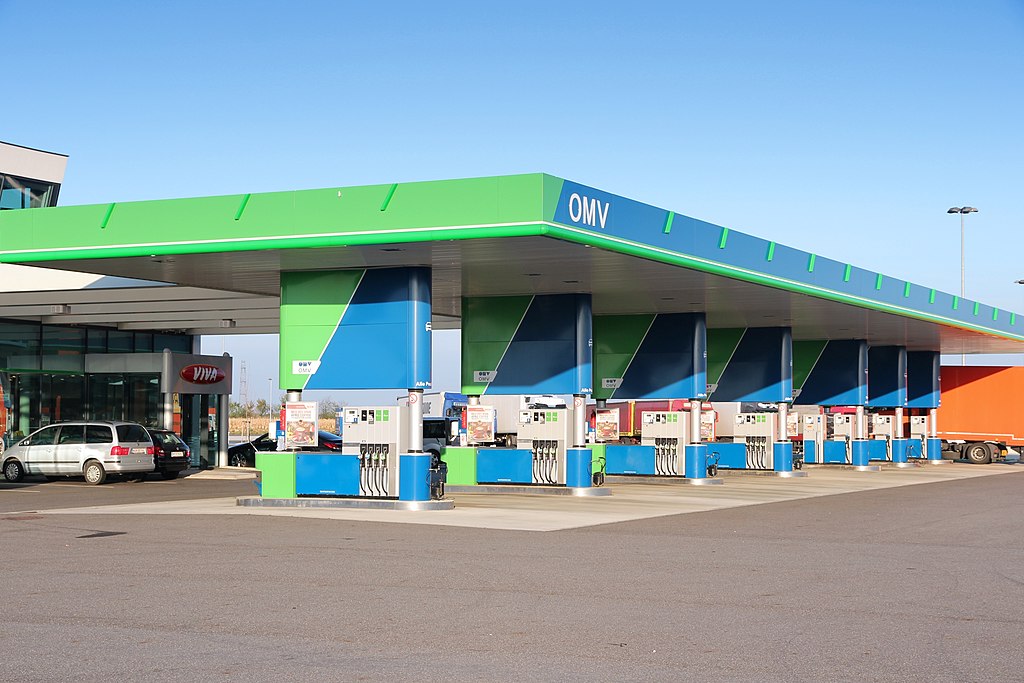In a dramatic escalation of Europe’s energy woes, Russia abruptly halted gas supplies to Austria on Saturday over a contentious payment dispute involving Austria's largest energy firm, OMV, and Russian state-owned Gazprom. Despite the suspension, Russia continued to pump gas through its key European transit route via Ukraine, keeping the flow steady for other remaining buyers.
Austria, heavily reliant on Russian gas, faced the abrupt cutoff after OMV sought to offset a €230 million ($242 million) arbitration award against invoices for gas supplied via Ukraine. Gazprom responded by ceasing deliveries to OMV, a move that underscores Moscow's tightening grip on its dwindling European customer base.
A Fragile Energy Web at Risk
Russia’s gas supplies to Europe, once dominant, have dwindled to a shadow of their former levels, following the 2022 Nord Stream pipeline explosions and Europe’s push to reduce reliance on Moscow amidst the Ukraine war. The Urengoy-Pomary-Uzhgorod pipeline, a Soviet-era lifeline for Russian gas to Europe via Ukraine, is now one of the few remaining conduits. However, this pipeline is set to shut down by year-end as Kyiv has refused to extend the existing transit agreement.
Austria’s energy regulator, E-Control, confirmed the halt in Gazprom’s deliveries but reassured consumers that domestic prices and supplies remain stable due to ample reserves. OMV, which typically accounts for 40% of Russian gas flows through Ukraine, is now left scrambling to secure alternatives.
Impact on Europe’s Energy Dynamics
While Austria has stockpiles to weather immediate shortages, the broader implications of this cutoff ripple across the continent. Slovak state-owned energy firm SPP reported increased gas demand from other buyers, emphasizing Europe’s continued reliance on Russian energy despite ongoing efforts to diversify. Hungary and Slovakia remain the last major European recipients of Russian gas, with Hungary reliant on a pipeline passing through Turkey.
The International Energy Agency noted that in 2023, Russian gas transiting via Ukraine accounted for 65% of demand in Austria and its neighboring countries. The latest disruption further strains a region already grappling with energy security concerns.
Political and Economic Fallout
As Europe confronts its dwindling ties to Russian energy, political tensions remain high. Austrian officials said no immediate substitutes were sought from Germany or Italy, while Moscow doubled down on its narrative of fulfilling contractual obligations. Meanwhile, the Kremlin highlighted its readiness for “mutually beneficial cooperation” if Europe signals interest, a thinly veiled jab at the EU’s pivot toward U.S. and Qatari gas suppliers.
The cutoff also comes amid continued fallout from the destruction of the Nord Stream pipelines. While Moscow blames the U.S. and Britain for the sabotage, reports have suggested Ukrainian involvement—an allegation Kyiv denies.
What Lies Ahead?
With Gazprom’s market share in Europe plummeting from 35% pre-war to a mere fraction, the long-term economic and geopolitical repercussions remain significant. For Austria and its eastern neighbors, finding stable energy solutions grows increasingly urgent as the clock ticks on the Ukraine transit route's closure.



 Gold Prices Rally in February as Geopolitical Risks and Economic Uncertainty Boost Safe-Haven Demand
Gold Prices Rally in February as Geopolitical Risks and Economic Uncertainty Boost Safe-Haven Demand  U.S. Stocks Close Lower as Hot PPI Data, Nvidia Slide Weigh on Wall Street
U.S. Stocks Close Lower as Hot PPI Data, Nvidia Slide Weigh on Wall Street  Gold Prices Steady in Asia, Set for Strong February Gains on Safe-Haven Demand
Gold Prices Steady in Asia, Set for Strong February Gains on Safe-Haven Demand  Toyota Plans $19 Billion Share Sale in Major Corporate Governance Reform Move
Toyota Plans $19 Billion Share Sale in Major Corporate Governance Reform Move  Pentagon Weighs Supply Chain Risk Designation for Anthropic Over Claude AI Use
Pentagon Weighs Supply Chain Risk Designation for Anthropic Over Claude AI Use  Boeing Secures $166.8 Million U.S. Navy Contract for P-8A Engineering and Software Support
Boeing Secures $166.8 Million U.S. Navy Contract for P-8A Engineering and Software Support  Germany and China Reaffirm Open Trade and Strategic Partnership in Landmark Beijing Visit
Germany and China Reaffirm Open Trade and Strategic Partnership in Landmark Beijing Visit  Trump Warns Iran as Gulf Conflict Disrupts Oil Markets and Global Trade
Trump Warns Iran as Gulf Conflict Disrupts Oil Markets and Global Trade  Stock Market Movers: Dell, Block, Duolingo, Zscaler, CoreWeave, Autodesk, Rocket, MARA
Stock Market Movers: Dell, Block, Duolingo, Zscaler, CoreWeave, Autodesk, Rocket, MARA  Samsung Electronics Stock Poised for $1 Trillion Valuation Amid AI and Memory Boom
Samsung Electronics Stock Poised for $1 Trillion Valuation Amid AI and Memory Boom  Netflix Declines to Raise Bid for Warner Bros. Discovery Amid Competing Paramount Skydance Offer
Netflix Declines to Raise Bid for Warner Bros. Discovery Amid Competing Paramount Skydance Offer  Trump Orders Federal Agencies to Halt Use of Anthropic AI Technology
Trump Orders Federal Agencies to Halt Use of Anthropic AI Technology  Paramount Skydance to Acquire Warner Bros Discovery in $110 Billion Media Mega-Deal
Paramount Skydance to Acquire Warner Bros Discovery in $110 Billion Media Mega-Deal  FedEx Faces Class Action Lawsuit Over Tariff Refunds After Supreme Court Ruling
FedEx Faces Class Action Lawsuit Over Tariff Refunds After Supreme Court Ruling  FCC Approves Charter Communications’ $34.5 Billion Acquisition of Cox Communications
FCC Approves Charter Communications’ $34.5 Billion Acquisition of Cox Communications 































